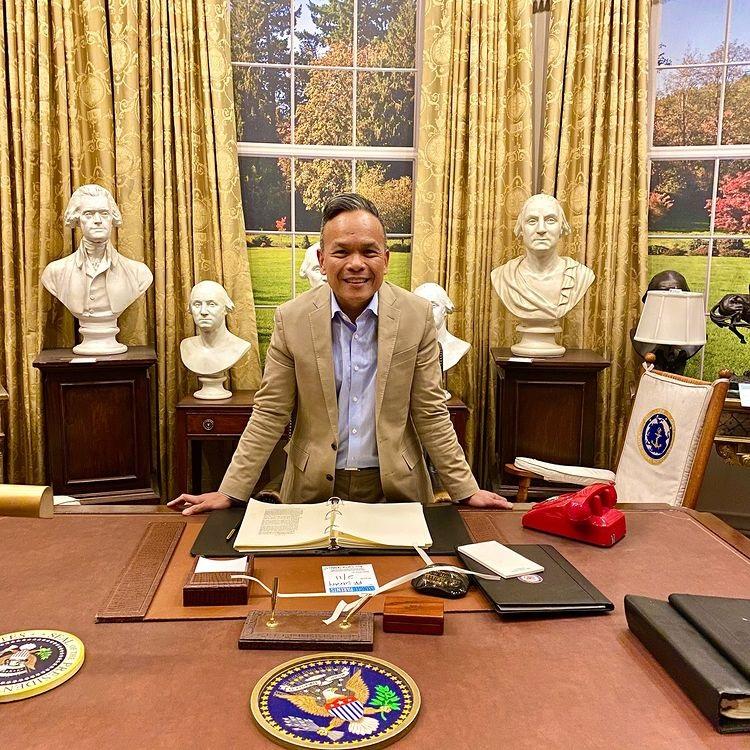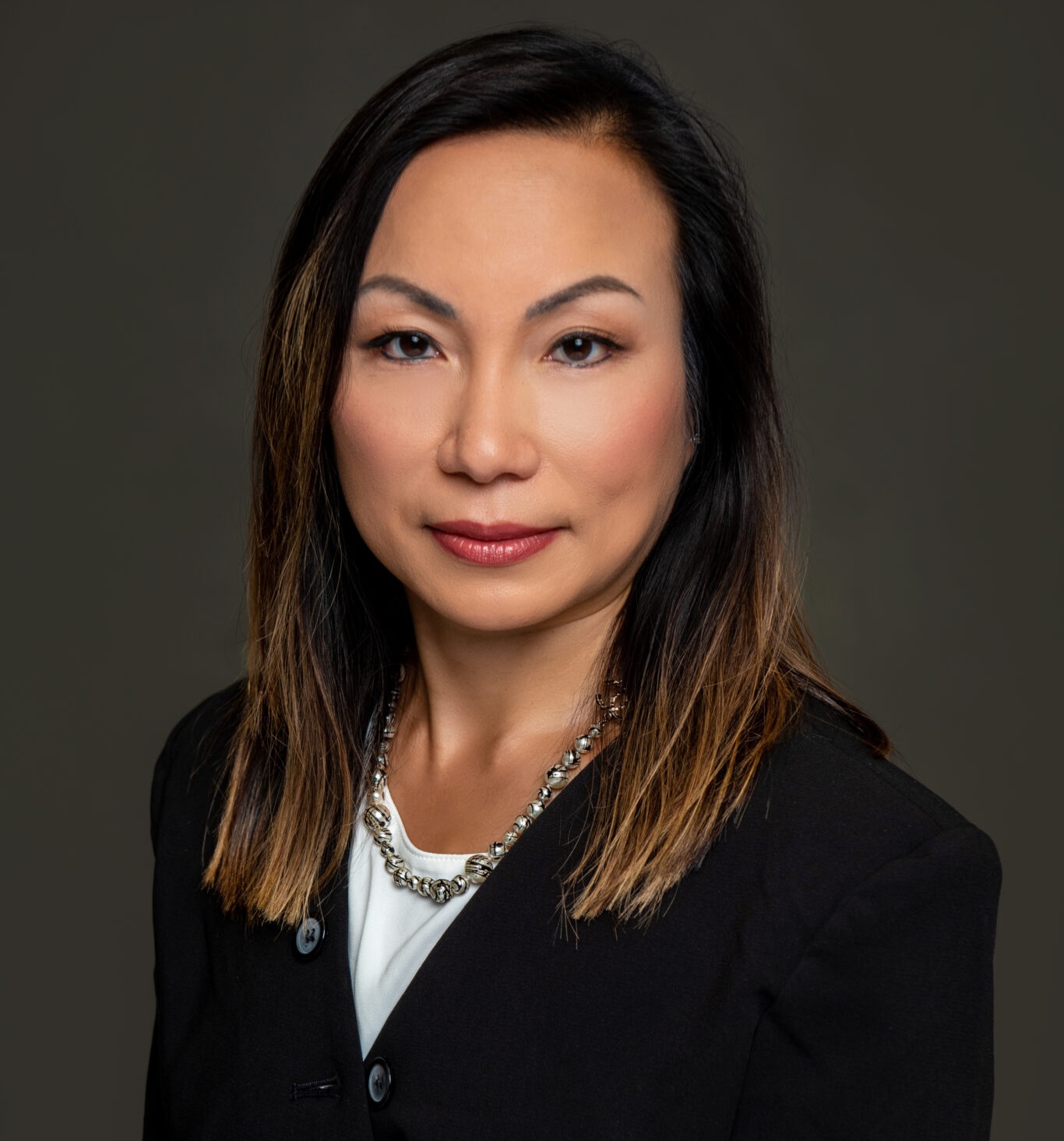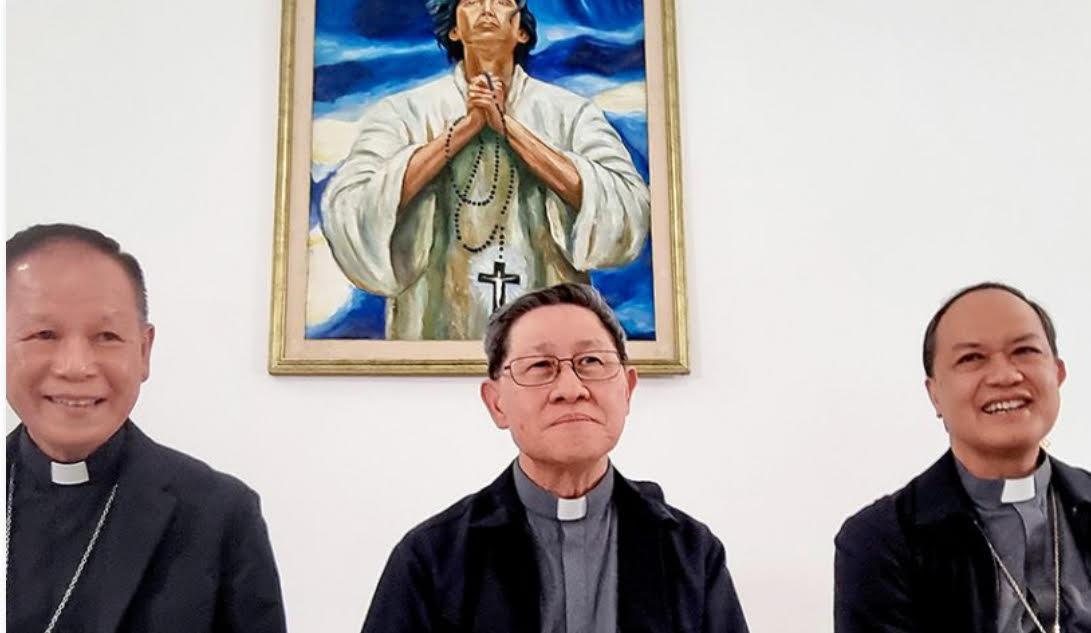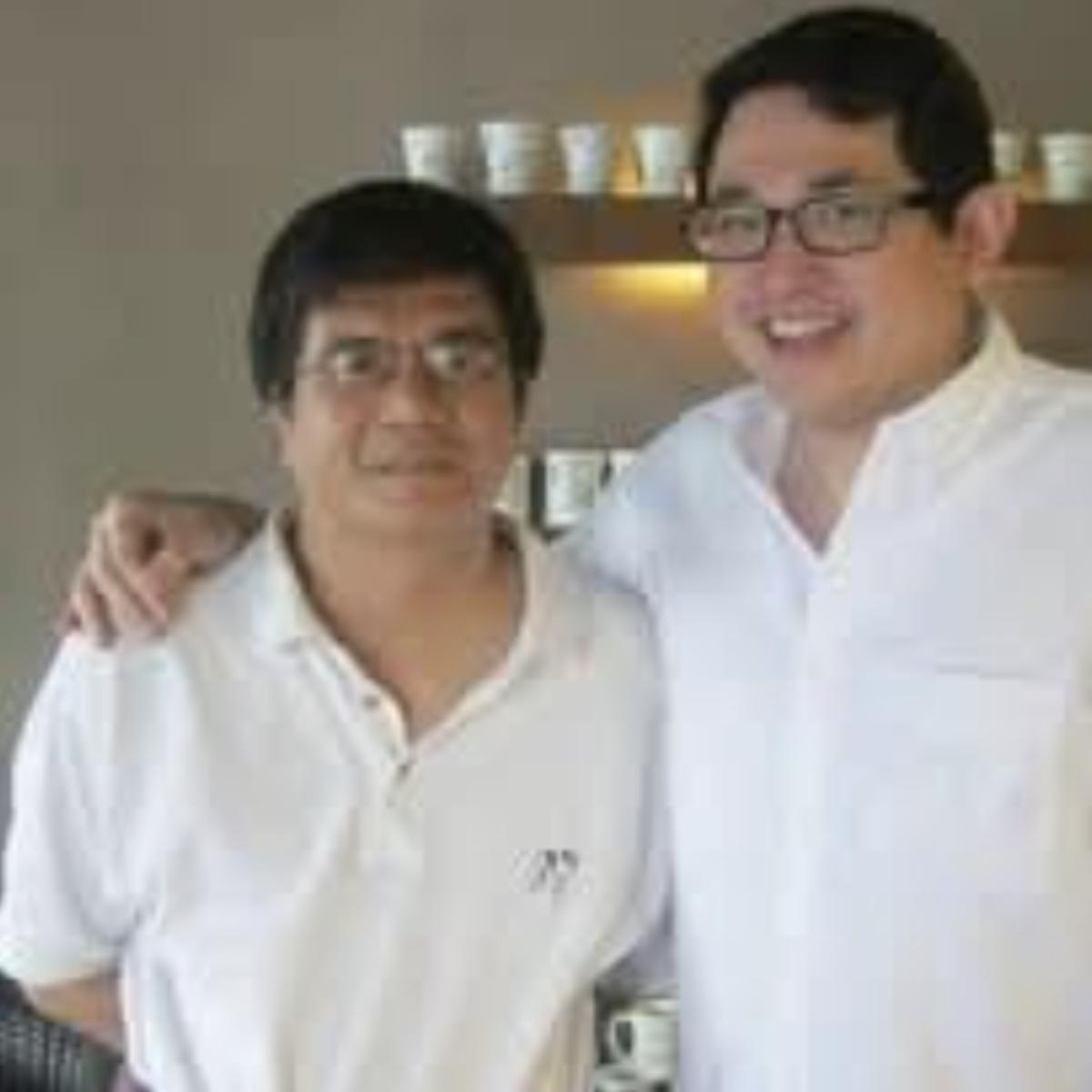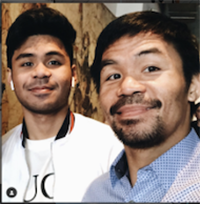Roswell Encina photo: Encina shared that his role as Chief Communications Officer has provided him with a once-in-a-lifetime opportunity to work at the largest library in the world, where he helps make its vast collections accessible to the public. Photo from Instagram/@roswellencina
Pop star Lizzo made headlines in 2022 when she played James Madison’s 200-year-old crystal flute at one of her concerts in Washington, DC, a historic moment that showcased how the Library of Congress can connect with modern audiences in unexpected ways. As Chief Communications Officer for the Library, Filipino American Roswell Encina had made it his mission to bring the institution’s vast treasures—178 million items, from rare books to comic books, and yes, even flutes—into the public eye, making history accessible to everyone.
Born in the Philippines, Encina’s journey from a TV journalist to the heart of America’s most prestigious library was driven by his love of storytelling. His role, however, is more than just managing communications. “At the end of the day, it’s the nation’s library, it’s America’s library,” he emphasized.
From his early days as a television reporter to his current role at the Library of Congress, Encina knew that his career as a storyteller is defined by his ability to connect with audiences and bring history to life.
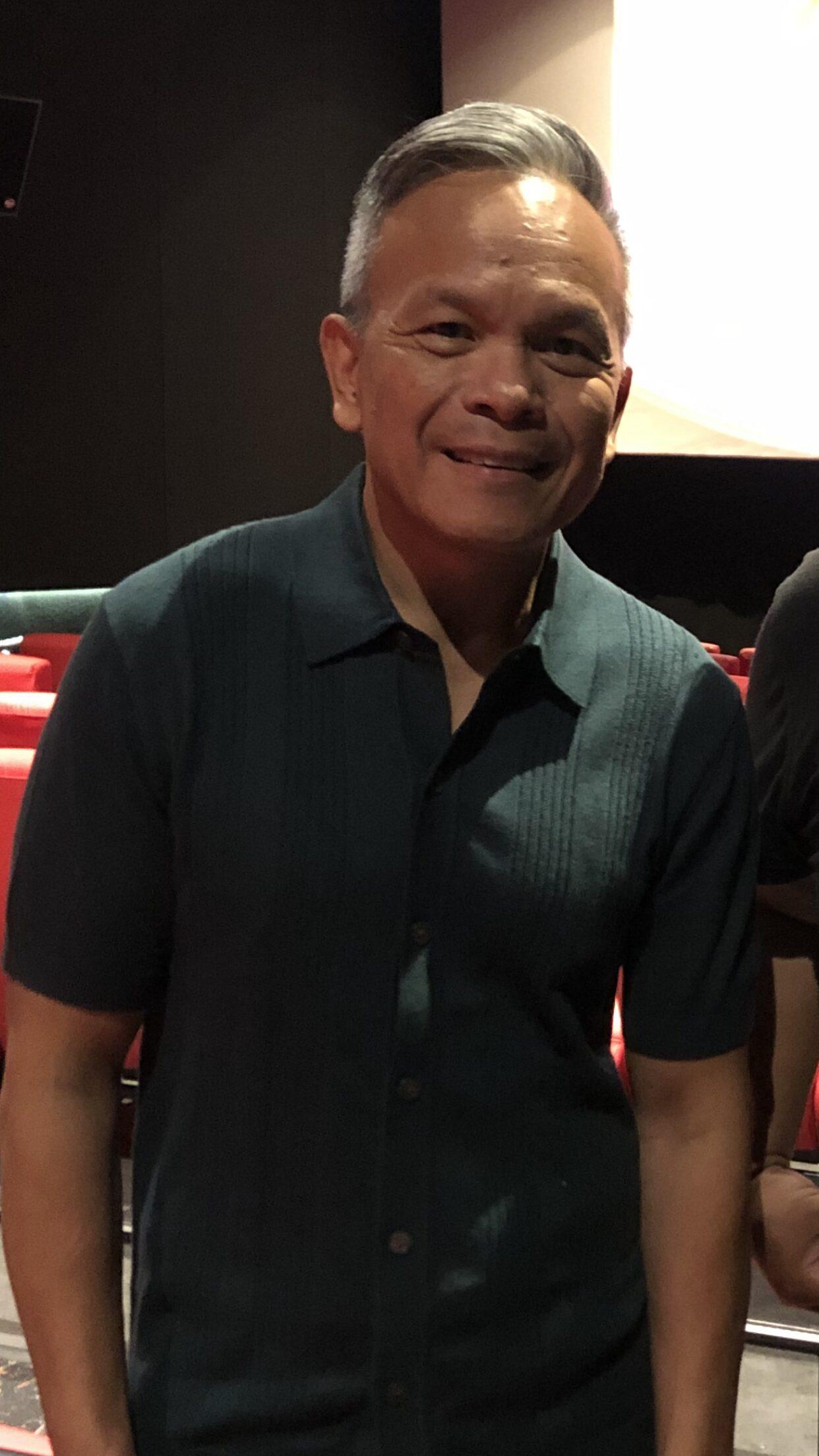
Encina moved to the United States with his family when he was just a year old, following his father’s assignments in the U.S. Navy. His family moved back to the Philippines when he was eight, and it was there that he completed his high school education, graduating at just 15. He then earned a degree in Marketing Management from De La Salle University before returning to the U.S. at 19.
Despite his early success, Encina felt he was still too young to settle into a career and decided to return to school when they returned to the United States. “I hadn’t truly discovered what I wanted to do professionally, so I went back to school,” he explained. He graduated with a Bachelor of Arts in Communications from Salisbury State University, fulfilling his long-held dream of becoming a professional journalist.
Encina’s broadcasting career took him across the country, from Salisbury, Maryland, to Huntsville and Birmingham in Alabama, then Memphis, Tennessee, and finally Baltimore, Maryland. After more than thirteen years in the TV business, he decided it was time for a change.
An opportunity arose at the Enoch Pratt Free Library in Baltimore, where he was hired as the Director of Communications in 2007. This role brought him into close collaboration with Carla Hayden, who would later become the 14th Librarian of Congress (the first woman and African American) in 2016.
Hayden appointed Encina as Chief Communications Officer in November of the same year. In this capacity, Encina manages and oversees communication strategies, media and public relations, programs and special events for the Library and advisor to the Librarian.
As the Chief Communications Officer, Encina plays a crucial role in shaping and delivering the Library’s public message. “My first priority is the best interest of the Library of Congress and its staff and, of course, the Librarian of Congress,” he stated. His role wasn’t just about managing communications; it was about broadening the reach of the Library to ensure that it was accessible to everyone, not just scholars and researchers.
“Everybody thinks of the Library of Congress as a scholarly research library, but at the end of the day, it’s the nation’s library, it’s America’s library,” Encina emphasized. “It is the largest library in the world, we have more than 178 million items there.”
He and his team are dedicated to making the Library’s vast resources available to a wider audience, including young filmmakers and students. “You don’t have to be Scorsese to use the Library of Congress. You could be a student from NYU, or a student at Berkeley, or a student in Southern California to use the library,” he added.
Encina was recently in New York to attend the Asian American International Film Festival, where he joined artist Jeffrey Yoo Warren in an insightful discussion. Yoo Warren, Innovator in Residence at the Library of Congress, shared his research and collaborative artistic efforts to create virtual reconstructions of historic Asian American neighborhoods that were destroyed, using maps, photographs, and items from both local and Library archives. His work aims to not only restore these spaces but also foster a deeper understanding of their significance for contemporary Asian American communities.
As a Filipino American, Encina finds personal significance in the treasures housed within the Library of Congress. “They’ve dug up some old maps from the Philippines. They’ve dug up some old treasures that the Library of Congress has in our Asian division,” Encina shared, reflecting on the profound connection between his heritage and his work. “So every time you see things like this, it does really make the hair on your arm go up, just gives you the chills.”
The Library of Congress, founded in 1800, is the oldest federal cultural institution in the United States. It houses the largest rare book collection in North America, including one of only three perfect copies of the Gutenberg Bible known to exist and a rough draft of the Declaration of Independence. It also houses the world’s largest collection of comic books, with the oldest dating back to 1936.
For Encina, working at the Library of Congress is not just a job; it is a mission. As he looks to the future, Encina is determined to keep pushing the boundaries of how the Library of Congress engages with the public, making history accessible to all, and ensuring that the Library remains a vital resource for generations to come.


